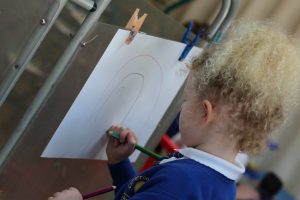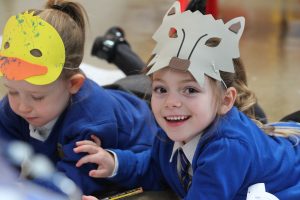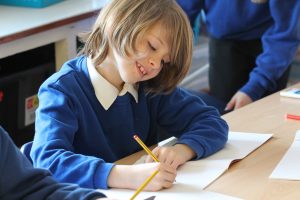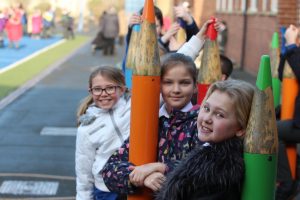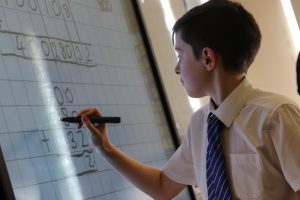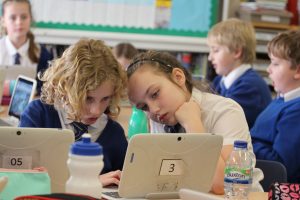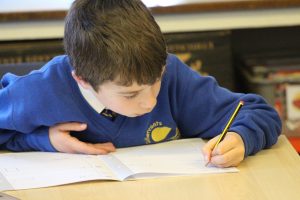Children enter the Foundation Stage at 4 years old from the various Nursery settings in and around our locality.
What do children learn in the Early Years Foundation Stage?
We believe children learn best when they are involved, engaged,interested, and secure in themselves and their own abilities. The children have the space and time for experiential learning, time for focused work, opportunities for individual choice, informal conversation and purposeful play.
We aim to provide a calm, happy, safe and stimulating environment for our children to learn in and A curriculum that all children can access; we take account of, and respond to your child’s individual needs and the stage of their development they have reached, which allows them to make progress related to their differing abilities.
This curriculum stage underpins all future learning by supporting, fostering, promoting and developing children’s understanding and skills.
Nursery Curriculum Overview AUTUMN
Reception Curriculum Overview AUTUMN
Nursery Curriculum Overview SPRING
Reception Curriculum Overview SPRING
Nursery Curriculum Overview SUMMER
Reception Curriculum Overview SUMMER
Personal, Social and Emotional Development
by providing opportunities for each child to become a valued member of the class and wider community, so that a strong self-image and self esteem are promoted.
- Social Skills – by providing opportunities that enable them to learn how to co-operate and work alongside and with each other and listen to each other.
- Language and Communication – with opportunities for all the children to talk and communicate in a variety of situations, to respond to adults and each other, to practise and extend the range of vocabulary and communication skills and to listen carefully.
- Reading and Writing – with opportunities for all children to explore, learn about and use words in a wide range of contexts and to experience a rich variety of books. During their first year in school the children spend a great deal of time developing phonic skills. Phonics is understanding letters and how they are used in words. The teaching of reading is important and children read with the class teacher and take books from school to read at home.
- Mathematics – with the opportunity for all children to develop their understanding of number, measurement, pattern, shape and by providing a wide range of contexts in which they can explore, enjoy, learn, practice and talk about them.
Knowledge and Understanding of the World – with opportunities for all children to solve problems, make decisions, experiment, predict, plan and question in a variety of contexts and to explore and find out about their environment and problem areas that have significance in their lives. - Physical Development – with opportunities for all children to develop and practise their fine and gross motor skills and to increase their understanding of how their bodies work and what they need to do to be healthy and safe.
- Creative Development – with opportunities for all children to explore and share their thoughts, ideas and feelings through a variety of art, design technology, music, movement, dance and imaginative and role-play activities.


